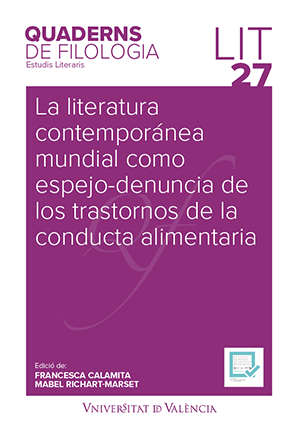Culinary Discourse, Diaspora and Motherhood in Sara Suleri’s Meatless Days
DOI:
https://doi.org/10.7203/qdfed.27.25744Keywords:
food, women’s writing, motherhood, gender roles, Sara Suleri, postcolonial literature Abstract
Abstract
The literal meaning of its title notwithstanding, Sara Suleri’s days as portrayed in her memoir are far from meatless. In fact, Meatless Days (1989) is very much food-focused, with images of meat, and of food in general, figuring either literally — as part of religious traditions — or symbolically — in association with the nurturing maternal body. This article explores Suleri’s recourse to the culinary trope as questioning and destabilising taken-for-granted issues of gendered national subjectivity (i.e., the identification of women with their social role as food purveyors), nativeness (i.e., the tie between migrants and their homeland) and postcolonial legacies (i.e., the idea of food as a repository of the national past). Food functions in the text not just as a mediator to an extended recollection of the author’s pre-emigration culinary memories, but also and especially as a shifting signifier for deconstructing binary oppositions, here specifically between the coloniser and the colonised, the native and the non-native, the mother and the barren woman.
 Downloads
Downloads
Downloads
Published
How to Cite
-
Abstract322
-
PDF (Español)749
Issue
Section
License
 Este obra está bajo una licencia de Creative Commons Reconocimiento-NoComercial-SinObraDerivada 4.0 Internacional.
Este obra está bajo una licencia de Creative Commons Reconocimiento-NoComercial-SinObraDerivada 4.0 Internacional.
Authors who publish with this journal agree to the following terms:
- Authors retain copyright and grant the journal right of first publication with the work simultaneously licensed under a Creative Commons Attribution License that allows others to share the work with an acknowledgement of the work's authorship and initial publication in this journal.
- Authors are able to enter into separate, additional contractual arrangements for the non-exclusive distribution of the journal's published version of the work (e.g., post it to an institutional repository or publish it in a book), with an acknowledgement of its initial publication in this journal.
- Authors are permitted and encouraged to post their work online (e.g., in institutional repositories or on their website) prior to and during the submission process, as it can lead to productive exchanges, as well as earlier and greater citation of published work (See The Effect of Open Access).



